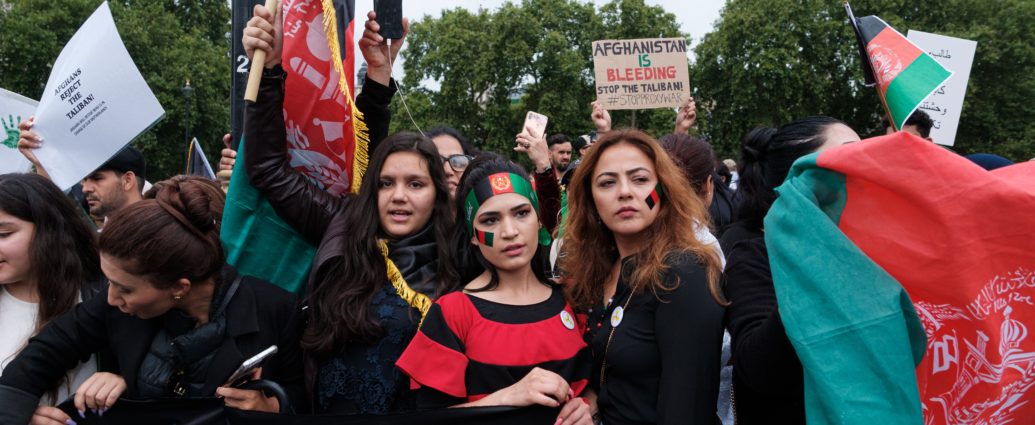Shannon McGuigan
A whistleblower has revealed the failures of the UK Government in evacuations from Afghanistan after the Taliban sezied Kabul.
![]() Criticism of the handling of UK evacuations out of Afghanistan after the Taliban seized power of Kabul have been plentiful. Former senior desk officer at the Foreign Office, Raphael Marshall, in written evidence to the Foreign Affairs Committee went as far as describing the system of prioritisation of evacuations from Afghanistan as “arbitrary and dysfunctional”, Mr Marshall who worked in the team of individuals who were also revered as Afghan Special Cases.
Criticism of the handling of UK evacuations out of Afghanistan after the Taliban seized power of Kabul have been plentiful. Former senior desk officer at the Foreign Office, Raphael Marshall, in written evidence to the Foreign Affairs Committee went as far as describing the system of prioritisation of evacuations from Afghanistan as “arbitrary and dysfunctional”, Mr Marshall who worked in the team of individuals who were also revered as Afghan Special Cases.
These special cases included civil servants, activists, politicians, Afghan soldiers, journalists, judges, workers and guards who are indirectly linked to the UK government as a result of subcontractors.
What are whistleblower Raphael Marshall’s claims?
Marshall makes harrowing claims that there was “limited staffing capacity”. So much so, he was the only individual addressing emails, despite the urgency of this humanitarian crisis. Mr Marshall gave insight into the team’s inability to adequately respond to urgent emails, remarking “usually 5,000 unread emails in the inbox at any given moment” continuing that “in thousands of cases emails were not even read”.
The whistle-blower further alleges that expectations of an eight-hour day and five-day working week remained for staff, despite the extreme urgency of the matter. He estimates that between 75,000 and 150,000 Afghans who were at risk because of their links to the UK applied for evacuations but only a heartbreakingly 5% received any assistance. 15,000 individuals were airlifted by the UK government. this includes 8,000 Afghans, 5,000 British nationals and 2,000 children.
Marshall stated that it was evident that “some of those left behind have since been murdered by the Taliban.”
Allegations of animals being saved in Afghanistan at the expense of people
Another criticism voiced by the whistle-blower was the decision to transport dogs from Pen Farthing’s Nowzad shelter, prioritising the evacuation of animals over those facing eventual murder. Marshall stated that the UK government transported animals “which were not at risk of harm at the direct expense of evacuating British nationals and people at risk of imminent murder, including interpreters who had served the British Army”.
It was also suggested that junior officials were abandoned to make “life or death decisions” regarding evacuations out of Afghanistan. Other key issues highlighted by whistle-blower Raphael Marshall are that:
- Within the team dealing with requests for assistance, none had any “detailed” knowledge of Afghanistan or had worked or studied in the country.
- Nobody was able to converse in Afghan languages. This meant that those requesting assistance had to speak English.
- The IT systems were extremely flawed. Exemplified by eight soldiers who were brought in to help to have to share one computer.
- The Foreign Secretary, Dominic Raab did not comprehend the severity of the situation and was often stagnant in making decisions on complex cases.
Tom Tugendhat, the Chair of the Commons Foreign Affairs Committee probed, “The real question that needs answering is, where was everybody?” In his conversation with BBC Radio 4’s Today Programme, the answer Mr Marshall provides is that the government was underprepared, leaving staff on their own to deal with an unmanageable number of requests for aid, “in a Foreign Office that was effectively a Mary Celeste at a time of national emergency”.
Dominic Raab’s response to criticism
In an interview with Sky News, the Foreign Secretary, Dominic Raab vehemently denied criticisms of the Afghanistan evacuations conducted by the UK. Raab declared that the UK government did “everything we could” to evacuate at-risk and vulnerable Afghans out of the country trailing the Taliban takeover of the state.
Despite claims that the Prime Minister instructed the Foreign Office to utilise “considerable capacity” to aid animals which were being looked after by Nowzad, Raab stated that accusations of animals being valued over those at risk of death as “not accurate. We did not put the welfare of animals above individuals.”
Raab continued defending himself against claims made by adding that “In two weeks we pulled off the evacuation of 15,000 people. That is the biggest evacuation in living memory, the only country that got more people out was the United States.” Continuing that “it took an absolutely heroic and herculean effort to achieve that, under incredibly difficult conditions.”
Since the evacuations and withdrawal of US and UK troops, The Taliban have declared themselves the government of Afghanistan, establishing an interim government in September of 2021. Their take-over means the removal of freedoms for multiple Afghans but the fear of death daily. The rise of the Taliban in the state also is a threat to Afghan living standards, with UN officials alerting that the country is on the brink of collapse as poverty rates increase, the economy declines and levels of hunger skyrocket.
Featured image courtesy of Ehimetalor Adhere Unuabona via Unsplash. Image licence found here. No changes were made to this image.

